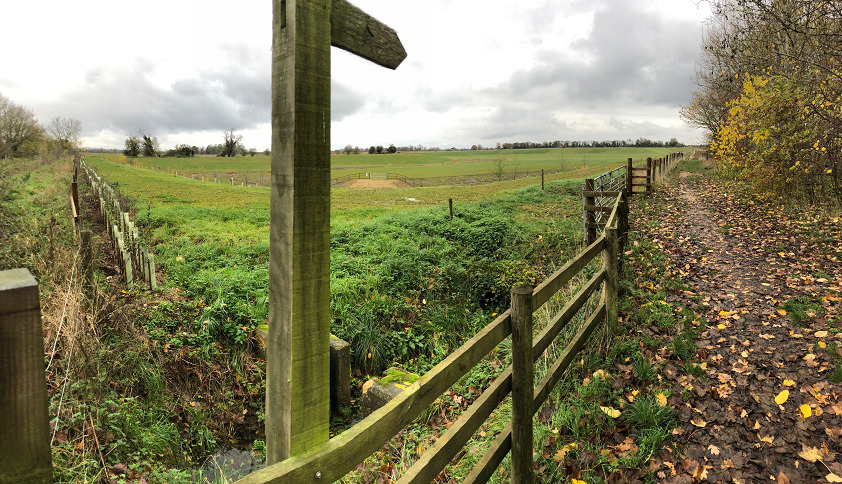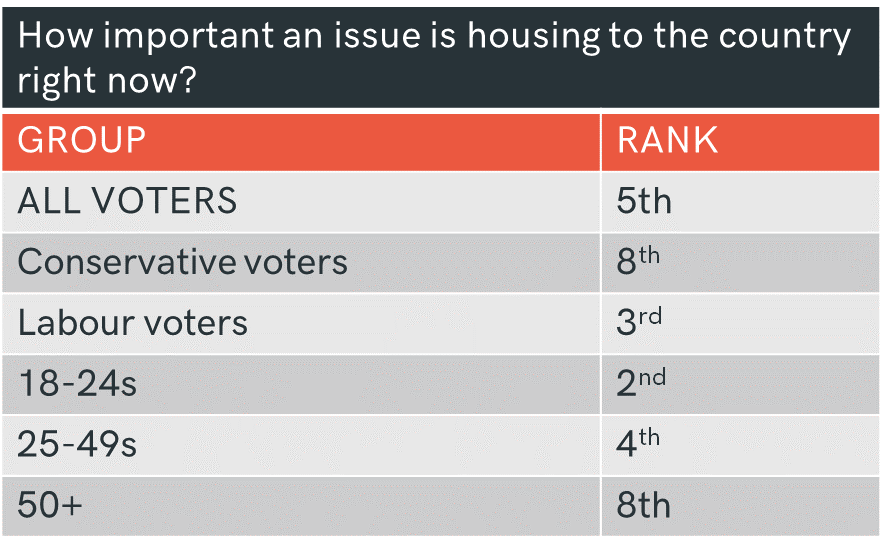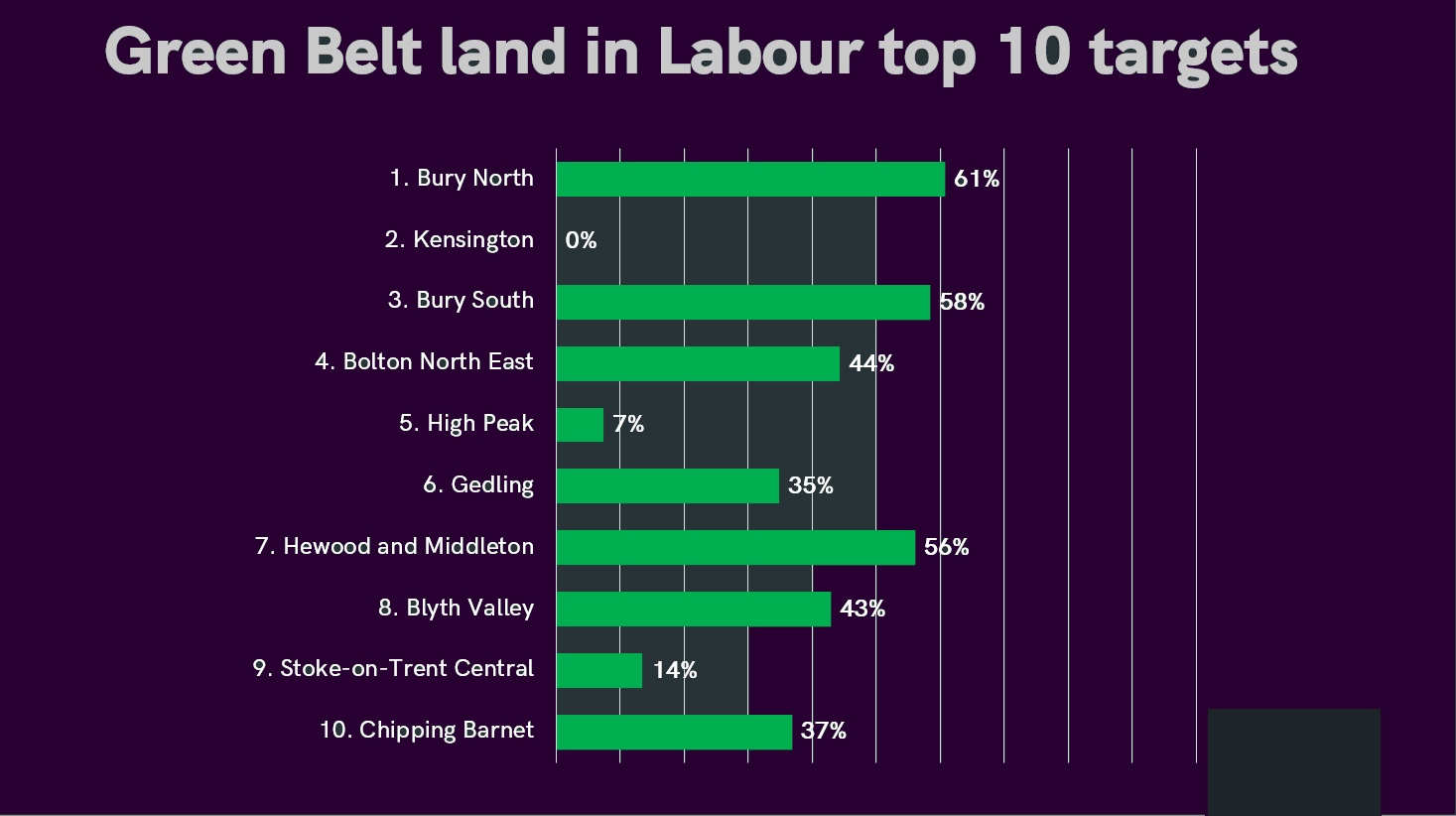The politics of Green Belt

Labour will “back the builders not blockers” by building more homes on Green Belt land and bringing back housing target, according to party leader Sir Keir Starmer in recent days. The announcement came in the middle of last week’s UKREiiF event in Leeds and there was a palpable sense that we might be finally seeing the beginnings of a shift in attitudes at a national political level about the need for planning reform.
Ahead of this month’s local elections, the housing crisis has risen up the political agenda to a height not seen for years. The cost of living coupled with Labour’s deliberate attempt to be ‘the party of homeownership’ ahead of the next general election has seen the housing crisis splashed on the front pages of national newspapers almost every week in May.
But does this make political sense for Labour? Or will it simply provide ammunition for other parties to claim that ‘your Green Belt isn’t safe under Labour?’
Housing is a concern for voters
The first thing to say is that housing will be a bigger issue at the next general election than previously. Traditionally, it hasn’t been a priority for voters – YouGov’s ‘most important issues facing the country’ tracker has never had housing in the national top 5 immediately before an election.
In March though, housing became a top 5 issue again for all voters nationally (ranked 6th for voters in the north) and the third highest priority for Labour voters. Moreover, it is the second highest concern for voters under the age of 24, a key demographic target for Labour.

Is the Green Belt really a big deal?
Only about 12.5% of land in England is within the Green Belt, yet it’s one of the most emotive issues in housing. This may be because, despite the small percentage of area covered, it is something that affects more than half of MPs in England.
319 constituencies in England have some Green Belt land within their boundary. Of these 188 are currently held by Conservatives, with 120 represented by Labour. Dig a little deeper and you see that as a proportion of seats held by the two main parties, the Green Belt affects a higher proportion of Labour MPs (69%) to Conservative MPs (56%).
BUT 81% of all Green Belt land is found in Conservative held seats. In fact of the top 100 Green Belt seats, only 25 are Labour.
Election Battlegrounds
So… this is a policy that affects all parties but is particularly emotive in Conservative areas, many of which Labour will be pushing to gain at the next general election.
9 of Labour’s top 10 target seats for the next election has Green Belt land and in seven of these more than a third of land within the constituency is Green Belt. Of these, four are located within Greater Manchester and have seen concerted efforts by campaigners seeking to stop Green Belt release via Places for Everyone.

And when only 27% of Conservative voters even partly support more housing on Green Belt land (see below), it’s a risky pitch for Labour to be making so far out from a general election and an obvious dividing line for incumbent Conservative MPs to draw in their bid for re-election.
So does Labour’s pro-housing pitch make political sense?
Well, according to opinion polls, not really. Only 24% of voters across the north say they would support allowing more housing to be built on Green Belt land, with just 7% saying they would strongly support it. Ironically fewer Labour voters support building more homes on Green Belt land than Conservatives.
This may explain why earlier this week Sir Keir told journalists in Bolton that he “wants to protect the Green Belt and our country. There is fantastic countryside across the UK and fantastic countryside across Greater Manchester as I know first hand.”
So on the surface Labour’s pledge of Green Belt reform has lasted less than a week and time will tell whether planning reform makes its way into the party’s election manifesto. But with opinion polls suggesting Labour will fall short of a majority at the next general election, I wouldn’t bet the house on it.
BECG is the sector specialist communications consultancy for the built environment and is the PRCA’s Public Affairs Consultancy of the Year. You can see our full local elections analysis here or contact kevin.whitmore@becg.com if you require advice on the politics of planning in the North of England.
Selected industry experts bring you insight and expert advice, across a range of sectors.
Subscribe for free to receive our fortnightly round-up of property tips and expertise
Selected industry experts bring you insight and expert advice, across a range of sectors.
Subscribe for free to receive our fortnightly round-up of property tips and expertise



